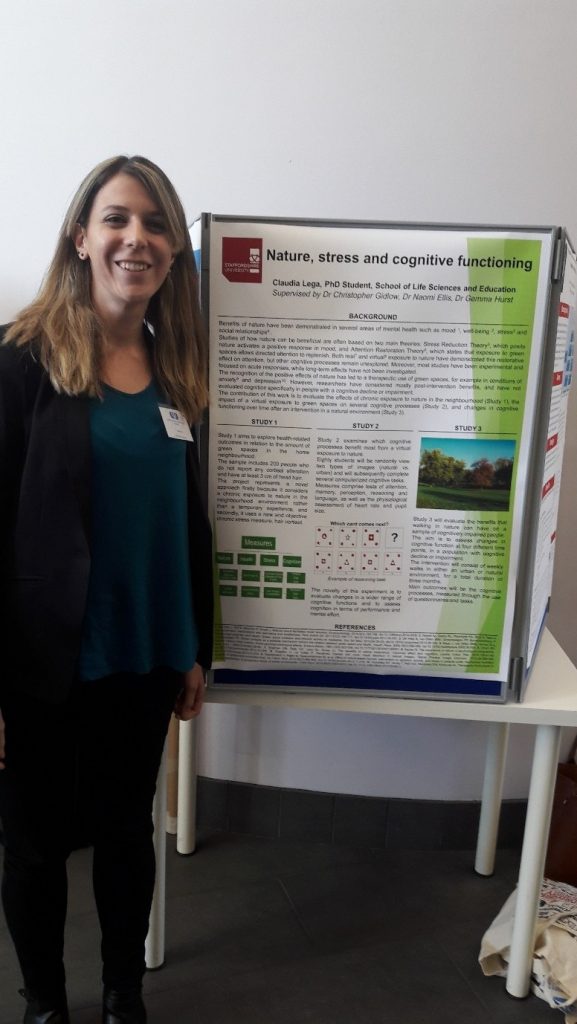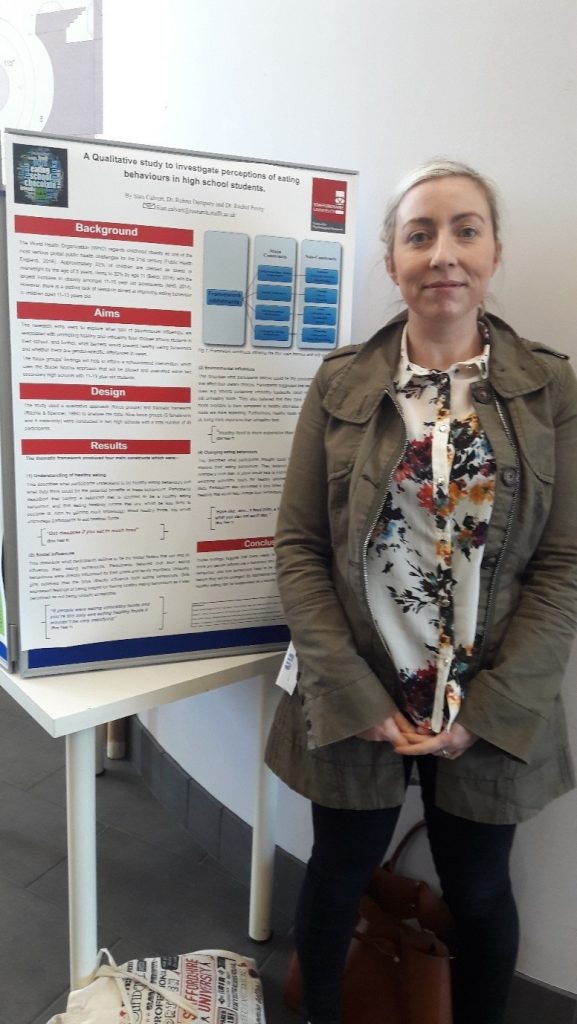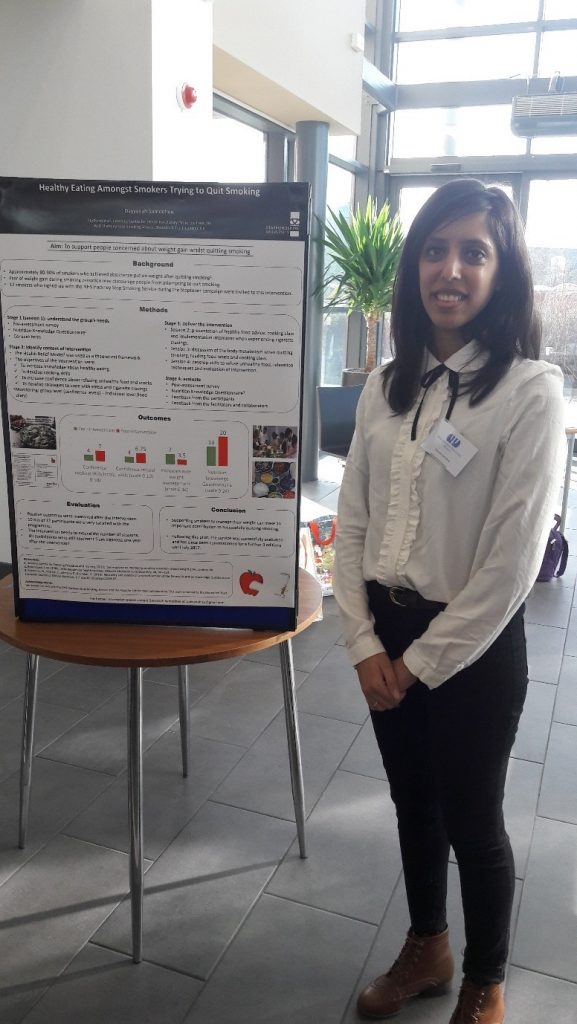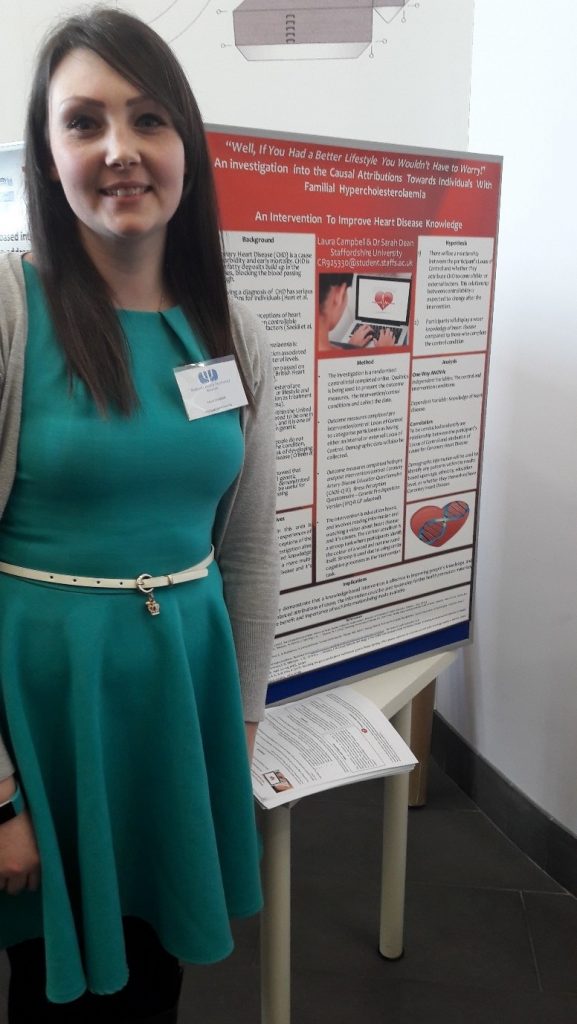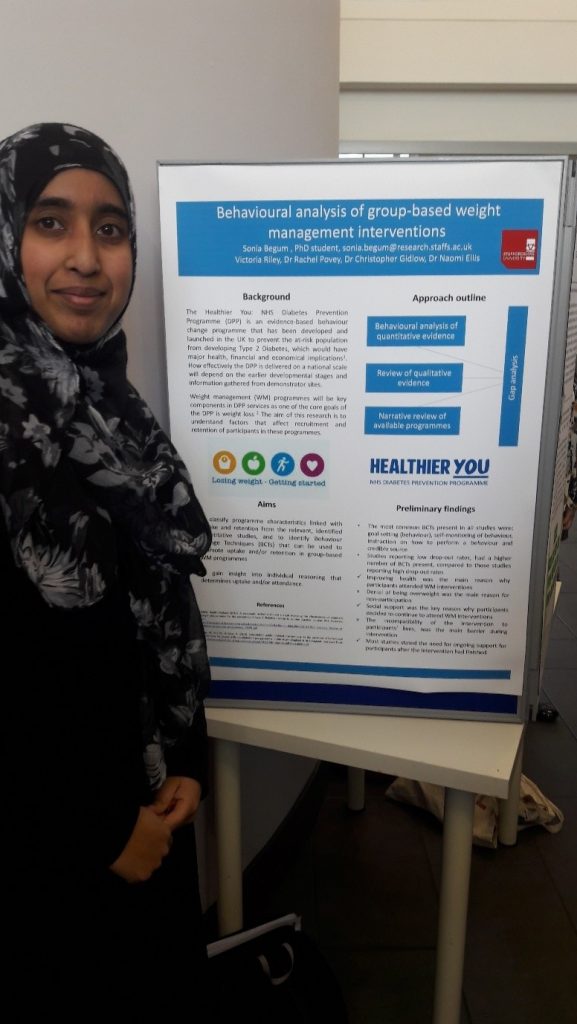This Thursday (30th March 2017) is the annual World Bipolar Day, a day to raise awareness and understanding of Bipolar-related conditions and reduce stigma. World Bipolar Day is held on the same date as the birthday of Vincent van Gogh, the renowned Dutch artist who likely experienced some form of bipolar-related condition. Dr Robert Dempsey, Lecturer in Psychology at Staffordshire University, conducts research to understand the role of psychosocial factors in the experience of and vulnerability to bipolar.
 Dr Dempsey comments that around one in every hundred people experiences a bipolar-related condition. People living with bipolar experience changeable moods including mania, a heightened state associated with increased behavioural activity, energy and speeded thoughts, and depression, including the experience of low mood, sleep difficulties and low energy. There are many other experiences associated with bipolar-related conditions, including increased anxiety, psychosis and other general health-related issues, so people’s experience of bipolar can vary. People living with bipolar also often report difficulties in their social and personal lives, and have an increased risk of dying by suicide compared to the general population. Estimates suggest that around 19% of people with a clinical diagnosis of bipolar die by suicide, but this could be an underestimate given that some people do not come into contact with healthcare services and may not receive a bipolar diagnosis, so the actual rate could be higher. It is important to note that many people with bipolar maintain a high quality of life, self-manage the symptoms associated with a bipolar diagnosis very well, and many attribute positives with their diagnosis such as increased empathy, creativity and enhanced emotions (Lobban et al., 2012).
Dr Dempsey comments that around one in every hundred people experiences a bipolar-related condition. People living with bipolar experience changeable moods including mania, a heightened state associated with increased behavioural activity, energy and speeded thoughts, and depression, including the experience of low mood, sleep difficulties and low energy. There are many other experiences associated with bipolar-related conditions, including increased anxiety, psychosis and other general health-related issues, so people’s experience of bipolar can vary. People living with bipolar also often report difficulties in their social and personal lives, and have an increased risk of dying by suicide compared to the general population. Estimates suggest that around 19% of people with a clinical diagnosis of bipolar die by suicide, but this could be an underestimate given that some people do not come into contact with healthcare services and may not receive a bipolar diagnosis, so the actual rate could be higher. It is important to note that many people with bipolar maintain a high quality of life, self-manage the symptoms associated with a bipolar diagnosis very well, and many attribute positives with their diagnosis such as increased empathy, creativity and enhanced emotions (Lobban et al., 2012).
The research we conduct here at Staffordshire University does not treat bipolar as an ‘abnormal’ experience, rather we see a bipolar continuum on which everyone in the general population is located, with some experiencing more severe and changeable moods than others. We focus on understanding the interaction between psychological and social factors in people’s experiences of bipolar and have conducted various studies in this area (1, 2, 3, 4).
Our current research has investigated the role of appraisals of an individual’s social environment in the experience of suicidality for people living with bipolar. We have conducted qualitative interview studies to understand the role of various social factors in the experience of suicidality for people with bipolar (5), the complex relationship between bipolar and social functioning and vice versa (6), as well as the experience of talking about suicidality in our interviews from the perspective of our participants (7). We are currently analysing data from a quantitative study investigating the prospective predictors of suicidality in a sample of people with bipolar, and have already reported that feelings of defeat and internal entrapment (feelings of being trapped by one’s moods and thoughts) are a predictor of increased suicidal ideation over time (8). By better understanding the psychosocial precursors of suicidality experienced by people with bipolar we can inform the development of more effective, targeted interventions to improve outcomes for people living with bipolar.
I hope that World Bipolar Day helps to raise awareness of bipolar-related conditions, improve the understanding of the varied experiences associated with bipolar, and helps to reduce the stigma that is often associated with bipolar and other related conditions.
Dr Rob Dempsey was also briefly featured on the BBC Radio Stoke news bulletins on 30th March discussing his research into suicidality and bipolar (click here to listen: from 3:15 into the programme).
WBD is an initiative of International Bipolar Foundation (IBPF) in collaboration with the Asian Network of Bipolar Disorder (ANBD) and the International Society for Bipolar Disorders (ISBD). For more information about World Bipolar Day please visit http://ibpf.org/webform/world-bipolar-day.
Dr Rob Dempsey is Co-Director of the Staffordshire Centre for Psychological Research, home to psychology-related research at Staffordshire University. The Centre is home to a number of research-active psychologists who are engaged in research across a wide range of psychological subdisciplines. The Centre has two overarching research streams, Health and Behaviour Change, and Applied Perception and Cognition.
https://www.youtube.com/watch?v=QROJn3W9bAw
The Centre provides training for PhD students, Research Masters degrees, as well as Professional Doctorates in Clinical and Health Psychology (click here for more details). The Centre also provides bespoke training to private and public organisations, as well as expertise for consultancy research opportunities. For more details about the Centre, its research activities, events and consultancy, please visit our website (click here).


 centre of excellence for teaching and research in Health Psychology, and is home to Staffordshire’s BPS Accredited Stage 1 MSc in Health Psychology and Stage 2 Professional Doctorate in Health Psychology. The Centre for Health Psychology is part of the Staffordshire Centre for Psychological Research.
centre of excellence for teaching and research in Health Psychology, and is home to Staffordshire’s BPS Accredited Stage 1 MSc in Health Psychology and Stage 2 Professional Doctorate in Health Psychology. The Centre for Health Psychology is part of the Staffordshire Centre for Psychological Research.

 in the use of ‘smart study drugs’ by university students in the UK, Dr Robert Dempsey (Lecturer in Psychology & Co-director of the
in the use of ‘smart study drugs’ by university students in the UK, Dr Robert Dempsey (Lecturer in Psychology & Co-director of the 


 the BSc (Hons) Psychology & Child Development) was featured on BBC Radio Stoke’s Sunday Morning Breakfast show discussing recent debates about competitive (or ‘pushy’) parenting and the effects on children’s development. Dr Rose discusses some of the psychological theory behind parenting styles which encourage competitive behaviour and whether this is beneficial for child development.
the BSc (Hons) Psychology & Child Development) was featured on BBC Radio Stoke’s Sunday Morning Breakfast show discussing recent debates about competitive (or ‘pushy’) parenting and the effects on children’s development. Dr Rose discusses some of the psychological theory behind parenting styles which encourage competitive behaviour and whether this is beneficial for child development. out more about Psychology courses at Staffordshire University.
out more about Psychology courses at Staffordshire University.



